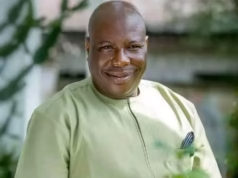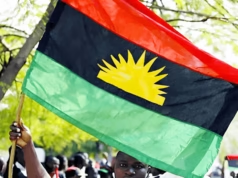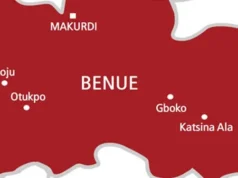APC Postpones NEC, Caucus Meetings: Here’s Why It Happened”
The All Progressives Congress (APC) has indefinitely postponed its highly anticipated National Executive Committee (NEC) and National Caucus meetings, which were initially scheduled to take place in Abuja. This decision has sparked widespread speculation, leaving many questioning the underlying reasons for the sudden shift in plans.
Internal Crisis and Power Struggles
One of the primary reasons behind the postponement is believed to be the ongoing internal crisis within the APC. The party has been grappling with power struggles among its key leaders, particularly after the recent changes in leadership. The ousting of former party chairman, Abdullahi Adamu, and other shifts within the party’s hierarchy have led to significant tensions. These unresolved issues have created a situation where it is difficult for the party to come together and make unified decisions during such high-profile meetings.
Lack of Consensus on Critical Issues
Another major factor contributing to the postponement is the lack of consensus on key issues that were to be discussed during the NEC and Caucus meetings. The APC has been facing several challenges, including the selection of new national officers, the party’s stance on the upcoming elections, and the direction of its policy agenda. With no agreement on these critical matters, the leadership likely opted to delay the meetings in order to avoid further fracturing the party.
Strategic Timing and Political Maneuvering
The decision to postpone could also be a strategic move by the APC leadership. By delaying the meetings, the party might be buying time to solidify its strategy and ensure that when the meetings do occur, they can project an image of unity and strength. This is particularly important as the party prepares for upcoming elections, where a united front is crucial for maintaining its political dominance.
Pressure from External and Internal Stakeholders
Pressure from both internal and external stakeholders may have also played a role in the postponement. Within the party, various factions are pushing for their interests to be prioritized, making it difficult to move forward with a cohesive agenda. Externally, the APC is under the watchful eye of the public and political analysts, who are keenly observing how the party handles its internal affairs. A poorly managed NEC or Caucus meeting could have negative repercussions on the party’s image and electoral prospects.
Conclusion
In summary, the indefinite postponement of the APC’s NEC and Caucus meetings is a clear indication of the party’s current challenges. Internal power struggles, lack of consensus on crucial issues, strategic timing, and pressure from stakeholders have all contributed to this decision. As the APC navigates these turbulent times, the party’s leadership will need to find ways to resolve its internal conflicts and present a unified front to maintain its standing in Nigerian politics
Join Our Social Media Channels:
WhatsApp: NaijaEyes
Facebook: NaijaEyes
Twitter: NaijaEyes
Instagram: NaijaEyes
TikTok: NaijaEyes





